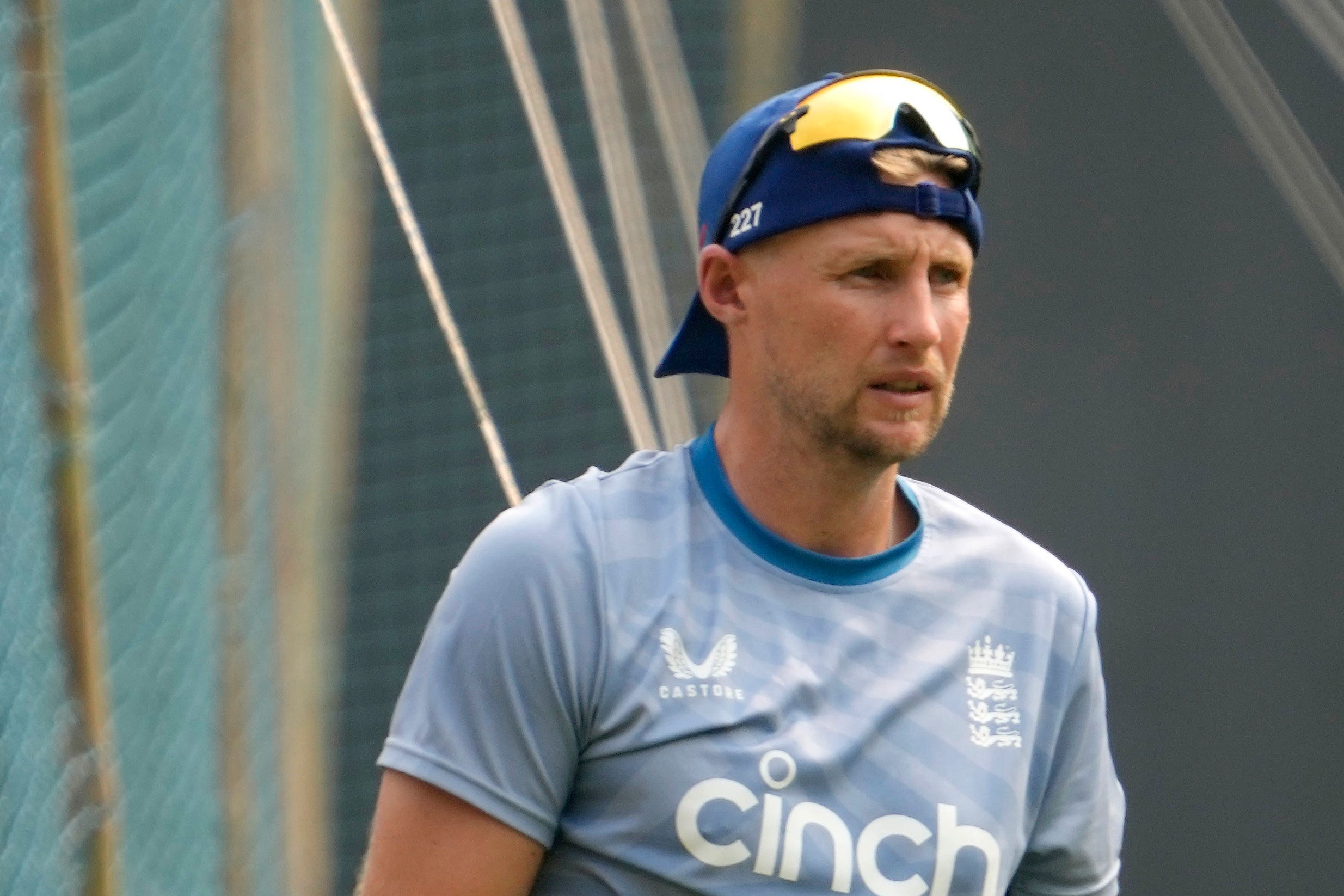Joe Root acknowledges growing uncertainty surrounding future of ODI cricket
England are the reigning World Cup champions but hopes of retaining their title in India are hanging by a thread.

England’s Joe Root admits doubts over whether ODI cricket remains “relevant” have not gone unnoticed by players at the World Cup in India, with scrutiny increasing over the future of the format.
The defending champions have been in desperate form at the tournament, losing three of their four matches to leave their semi-final prospects dangling by a thread, but there are wider questions over the 50-over game as the T20 behemoth continues to grow unchecked.
Barring a few outliers, including a lively crowd for England’s loss to Afghanistan in Delhi, attendances have been well below expectations in a country renowned for its passionate support and the lack of close finishes has contributed to a lack of ‘buzz’ at the competition.
The PA news agency understands there are early signs of concern at host broadcaster Star Sports and The Cricketer has reported that the long-range prospects of the one-day game will be discussed at the International Cricket Council’s next board meeting in November.
ICC chair Greg Barclay has already said the success of the event can only be judged once it is complete and sources have rebuffed the idea that the format is under threat. They cite long-term rights deals that include 50-over World Cups in 2027 and 2031 and record streaming figures of 43million viewers during India’s victory over New Zealand on Sunday.
In the United Kingdom, Sky Sports has a direct agreement with the ICC running for the next eight years, including both of those World Cups.
But Root, speaking at England’s team hotel in Bengaluru, acknowledged the growing sense of uncertainty.
“There’s talk of whether this format is relevant any more anyway, in international cricket,” said Root, who helped England win their first World Cup title in 2019.
“Whether that gets changed…I don’t know. Who knows how things move in the future? Whether it’s domestically or internationally, I don’t think we play enough of it if we’re going to continue to look to compete in World Cups.
“I think it’s got a huge amount of history and it brings a lot to cricket. It will always hold a very special part of my heart for what it’s given me throughout my career, but I think it’s a question that should be posed to the next generation of players, and to everyone watching the game, really.
“It shouldn’t be down to, ‘is it bringing the most money for the sport?’ It should be down to what people want to watch, and what’s going to engage the next generation of players. Because in the long term, I think that’s going to be most beneficial for cricket all-round.”
There’s talk of whether this format is relevant any more anyway, in international cricket
The issue is acute in England, where the legacy of becoming world champions in the format has been a downgrading of the domestic competition to developmental status.
The Metro Bank One-Day Cup is now contested largely by emerging players and second-teamers due to its clash with The Hundred, meaning the newest faces in Jos Buttler’s side – Harry Brook and Gus Atkinson – have barely played the format and are effectively learning it on a global platform.
Root is uneasy with that situation and believes if ODI cricket is to continue, radical steps may be necessary.
The Hundred has significant critics, as a form of the game that is not played anywhere other than England, but Root has put forward the T20 Blast – reliably popular among counties and county members – as a potential sacrifice.
“It doesn’t make me change my mind about The Hundred. It makes me question whether we should be playing more 50-over cricket instead of T20,” he said, before backing away slightly from what is a thorny conundrum with no easy solution.
“But I don’t want to get into a debate about this. I don’t want it to be seen as an excuse (for under performing) because that’s not what we’re about as a team. That’s not how I look at things, but I haven’t got any good argument for anything else.”
While matters of global infrastructure and international scheduling are sure to continue, England have more immediate problems after their unexpected run of adverse results which, thanks to Afghanistan’s shock win over Pakistan on Monday, have left them rock bottom of the table.
Thursday’s game against Sri Lanka is must-win to uphold any realistic hopes of reaching the knockouts and Root is hoping the do-or-die scenario can kickstart a revival.
“We’ll look at that as a World Cup final now, then do the same for the game after that and the game after that,” he said.
“I’ve played in a number of different England teams – good ones and bad ones. This is one of the very best; it’s a very together team and we know what we need to do.
“This white-ball team, over an eight-year period now, likes very simple messaging and has responded very well to it. We’ve got some very simple messaging in front of us right now: we have to go out and win. In some ways that unshackles us and frees us up to do what we do.”
Bookmark popover
Removed from bookmarks